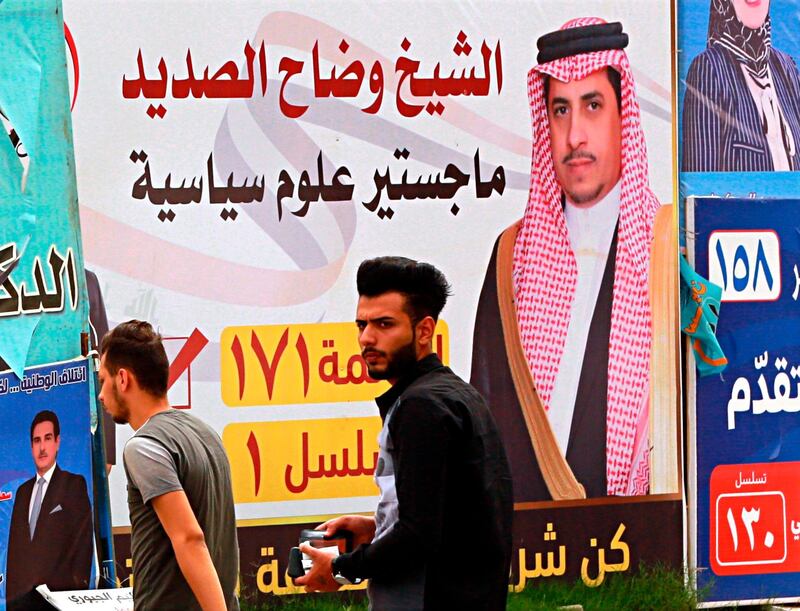Security threats are a key concern in Iraq's Sunni areas, where ISIS continues to carry out sporadic attacks on civilians and members of the security forces.
Recent attacks by the insurgents include the killing of an Iraqi parliamentary candidate in early May and two policemen guarding an oilfield facility, among others - violent attempts at further destabilising the country ahead of Saturday's parliamentary elections.
Last month in an audio message the group's spokesman Abu Al Hassan Al Muhajer threatened to target polling stations.
"We warn you, Sunnis of Iraq, of these people [Shiites] taking power. Polling stations are a target for us, so stay away from them," he said.
__________
Read more:
Iraq elections 2018: country readies for first polls since end of ISIS war
Iraq vice president says elections alone will not solve the country’s problems
Comment: We have not yet seen the full impact of ISIS sleeper cells coming back to life
Displaced Iraqis return to destruction and death ahead of elections
__________
Despite the hollow warning, Iraq's Sunnis are likely to continue bearing the heaviest brunt of all, even as the four-year battle against ISIS is seemingly coming to its end.
A fraught relationship with Baghdad's Shia-majority government could perpetuate the Sunni community's widespread sense of hopelessness.
But Iraq's security forces have vowed to protect the country's polling stations, confident in their ability to provide the utmost security, including a nation-wide strategy, with particular focus on the more vulnerable Sunni-majority areas.
Brigadier Gen Abdul Karim Al Khafaji, a spokesman for the Iraqi military in Diyala province, told The National that a curfew will be set in place in the eastern governorate and the roads that lead into urban areas will be closed. In addition, motorcycles will not be allowed to transit and only cars with security clearance will be able to move inside the city.
The polling stations, he said, will be heavily manned by members of the military and the police.
“We have finished all logistical preparation for the election day,” said Brig Gen Al Khafaji, confident that ISIS will not jeopardise the voting. “We have everything under control, we had a great victory against the terrorists, and they cannot do anything in the future beside empty threats, which is a cry out of desperation.”
__________
Read more:
Iraq still fighting ISIL, Abadi admits
Iraq elections 2018: Will Haider Al Abadi be re-elected?
Iraq elections 2018: military and diaspora begin casting their votes
Four killed in ISIL suicide attack on Iraq party HQ
__________
Last month the spokesman for the Independent High Electoral Commission (IHEC) announced that the committee had finalised the voting process for displaced Iraqis in the provinces of Kirkuk, Nineveh, Salahuddin and Anbar.
According to Karim Tamini, polling stations will open close to displaced people's camps and individuals who have been unable to access their voting cards will be able to vote by providing personal ID, state food stamps, passport or any other form of identification.
Despite government reassurance, Sunni civilians remain wary of Baghdad and don't trust that elections will change much for them.
Abu Omar, a 40-year-old displaced man, appeared disenchanted with the political elite.
“The candidates started to knock on our doors for the past month for our votes, but for the coming four years it will be our turn to knock on their doors, which their bodyguards will never allow us to get close to," said the father-of-five.
“Let’s say I voted ... who will guarantee that we’ll not face any consequence if I go back to my village," he said. "At the end of the day the Sunnis are the ones who will pay the price."





